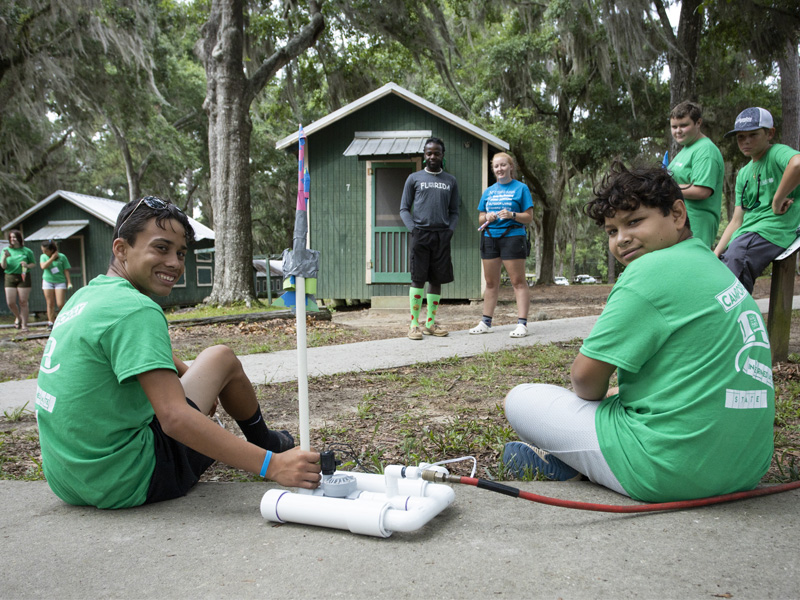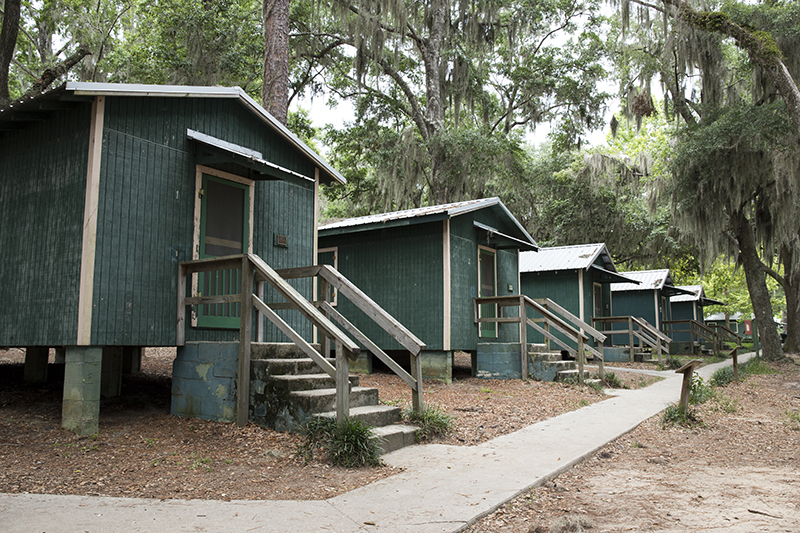With 4-H summer camp season on the horizon, the statewide youth development program is advancing several new initiatives to support long-term sustainability of 4-H camps in Florida.
“4-H camping has been around for almost 100 years in Florida and has helped hundreds of thousands of youth, if not more, learn by doing and gain a sense of independence. These next steps will help ensure more youth continue to enjoy and benefit from the camp experience and have opportunities to learn about Florida’s environment and agriculture,” said Michael Gutter, associate dean for UF/IFAS Extension and state program leader for 4-H.
Florida 4-H operates three camps in the state: Camp Timpoochee in Niceville, Camp Cherry Lake in Madison and Camp Cloverleaf in Lake Placid.
New 4-H camp program initiatives include:

- Increased investment in camp infrastructure and staff. To ensure financial sustainability, philanthropic partnership opportunities will be identified at various levels. Camp fees will increase to align with national averages, and financial aid opportunities for youth will increase as well.
- Open and flexible registration. Campers will not need to be 4-H members to attend camp, and they will be able to attend any of the three camps regardless of their home county.
- Development of a counselor-in-training program for teenage youth interested in leadership opportunities.
- Specialized curriculum for each camp:
- Camp Timpoochee: Marine science
- Camp Cherry Lake: Agricultural sciences and workforce development
- Camp Cloverleaf: Outdoor and environmental education
In addition, all camps will seek American Camp Association accreditation to increase the number of youth served and allow outside organizations to use 4-H camp facilities beyond the summer camping season.
Camps Timpoochee and Cloverleaf
Florida 4-H camps offer many opportunities to teach youth and visitors about Florida’s natural resources and the science, technology, engineering and math (STEM) skills needed to conserve them.
Located on Choctawhatchee Bay and the Gulf of Mexico, Camp Timpoochee offers numerous ways for visitors to engage with marine science. Camp Cloverleaf, which sits on the shores of Lake Francis and is nestled among citrus groves, sprawling oaks and fields, likewise opens the door to many outdoor and environmental education experiences. The Florida 4-H program plans to take advantage of these camps’ surroundings to offer curriculum tailored to the local environment and natural resources.

Camp Cherry Lake
Major facility and infrastructure updates at Camp Cherry Lake have already been in the works. In 2021, the camp celebrated the renovation and expansion of the pavilion and classroom, with the pavilion dedicated to and named for Henry and Nell Davis. This summer kicks off the next multi-year phase of improvements: replacement of most of Camp Cherry Lake’s cabins with climate-controlled lodging with enhanced accessibility. The new cabins will make stays at the camp more accessible and allow more groups to use the facilities outside the summer camping season. One original cabin will be retained to share with visitors the history of the camp and area.
For many camp alumni, Camp Cherry Lake’s original cabins hold great sentimental value. Because of this, the old cabins are being offered to alumni at no cost, as long as they can transport it to another location. Cabins will be available on a first come, first served basis, and more details will be shared in the next month. Those interested can also contact Erin Mugge (erin.mugge@ufl.edu).
4-H is the youth development program of the land-grant university system and Cooperative Extension System. The program provides hands-on educational programs and experiences for youth ages five to 18 with the objective of developing youth as individuals, and as responsible and productive citizens. In Florida, 4-H is administered by University of Florida/IFAS Extension and Florida A&M University. Learn more at florida4h.org. If you are interested in investing in the future of 4-H camps, contact Caylin Hilton at grow4H@ifas.ufl.edu.
 2
2
